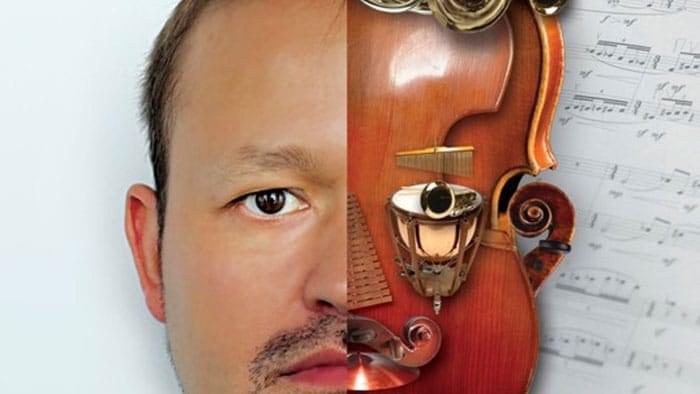
In “Dancers,” which screened at the 33rd annual Cleveland International Film Festival, Annika (Trine Dyrholm) is a Danish woman who runs a dance school with her mother. The school has been in the family since 1944. Although Annika is fit and pretty, she is approaching middle age, and seems worried about finding a mate. Her mother is a bit concerned about this as well.
Into their lives strides Lasse (Anders W. Berthelsen), a chubby electrician who likes video games, heavy metal music, and beer. The cultured Annika takes a shine to the sloppy Lasse, whose personality oscillates between surly and shy, while Annika’s goes between bemused and flirty. She persues Lasse with the confidence of a strong woman, but one who finds herself on the verge of cougardom. Lasse is reluctant about this persuit at first, because he has a few skeletons in his closet, the main one being that he has just been released from prison. This does not appear to phase the determined Annika.
On four occasions, Lasse tells Annika the circumstances surrounding his incarceration, and each time he tells his story, he paints himself as being a little bit more guilty than before. Each time Annika listens, she becomes a little less accepting of his past. Although sparks are flying (as mother points out) with Annika and her electrician, this man has been accused of being the worst sort of sexual predator. However, it might be noted that Annika is the real predator in this film, refusing to let Lasse go, no matter how many times he tells her to go away.
While the man has clearly been at fault in his sordid past, most viewers will believe that his crime was due to a one-time loss of control (not that he can be excused for this), so there are indeed grey areas in his guilt. Additionally, his prison sentence has been served, and he endured torture while there. This all adds up to a man who has paid his debt and is ready for a clean start.
Still, it is never clear why the slender and fit business owner Annika is so obsessed with this blue-collar, criminal schlub. He is free of charm, and has nothing to offer her. Truly, she virtually stalks the man, and even seems aroused when he is almost goaded into violence by her. Their sex is never tender; it is always quick, coarse humping, usually followed by the loutish Lasse zipping up and walking away.
But herein lies the mystery of Annika’s personality. This man is everything that her mother wants her to avoid. Things aren’t always smooth with mom, and one wonders how much of Lasse’s appeal is simply Annika’s way of getting back at mother. By necessity, we do learn a fair amount of Lasse’s story, but Annika’s past, a past that drives her present motivations, remains a mystery. Although I was curious to discover what (aside from her dominating mother) made her the way she is, maybe leaving that question unanswered opens the film up for further discussion.
I had some issues with this film on a technical level (some lighting problems, and a needlessly shaky camera a lot of the time), but I recommend it for the magnetic Trine Dyrholm’s characterization of Annika, a woman with secrets that we never learn, who is determined to land a man that she should not be interested in.
And one must also love the cool cover version of David Bowie’s “Let’s Dance” over the closing credits!
